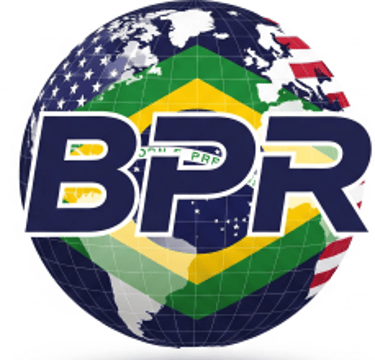
Market Moves, Suspicion & Politics: Inside Brazil’s tariff Storm
When former U.S. President Trump announced a 50% tariff on Brazilian imports on July 9, 2025, markets reacted sharply—but the real shock came from the R$6.6 billion in dollar contracts traded hours before the announcement—raising red flags about possible insider trading or even economic sabotage.
BPR
7/24/20252 min read
Market Surge Before the Official Announcement
At around 11:30–12:45 on July 9, the Brazilian stock exchange saw nine unusual dollar-dollar contract trades, totaling R$6.6 billion—almost 10% of daily volume. The largest single transaction, worth R$2.7 billion, was executed by BTG Pactual, with other institutions like BGC Liquidez (linked to U.S. Commerce Secretary Howard Lutnick), and Tullett Prebon, also implicated.
The currency reacted in real-time to Trump’s official tariff announcement; however, the early trades suggest someone acted with prior knowledge—possibly due to leaks or coordination between insiders and foreign interests.
Is This Insider Trading—or Worse?
Brazilian MPs and analysts warn this could constitute a crime in the economy:
PT leader Lindbergh Farias is pushing for a mixed CPMI (joint Congressional investigation) to look into the trades, claim of “insider gains,” and potential links to the Bolsonarista network and Trump administration.
The AGU (Brazilian Justice Ministry) formally asked the STF to open an investigation into possible market crimes ahead of a tariff.
If proven, participants could face serious economic crime charges: Insider trading, market manipulation, and possibly colluding with foreign governments to harm Brazil’s economy and sovereignty.
Potential Ramifications for Investors & Democracy
For Investors:
Legal turbulence: Ongoing scrutiny may trigger CVM (Brazilian SEC) involvement, signaling major risk for traders and international investment firms.
Market volatility: Sudden leaks or political meddling could scare off global capital, wary of bias in Brazilian market access.
For Democracy:
Foreign interference: The tariff is widely seen as U.S. retaliation against Brazil’s judiciary for cases involving Jair Bolsonaro—a form of foreign pressure that undermines national sovereignty.
Institutional checks: The swift reaction by legislators, AGU, STF, and now a proposed CPMI demonstrates democratic resilience—even when confronting potential internal and external plots.
What’s Ahead: CPMI, Investigation & Consequences
CPMI launch: As Congress returns, signatures will be collected to form a mixed CPI, aiming to:
Track the origin and beneficiaries of the R$6.6 b transaction wave.
Trace any communications between operators and political actors.
Explore links to Trump-aligned figures in Brazil like Eduardo Bolsonaro,
STF probe: The Supreme Court, guided by the AGU’s petition, may open formal investigations into whether insider trading and economic sabotage occurred.
Regulatory enforcement: The stock exchange, CVM, and tax authorities could freeze suspicious funds, apply sanctions, and restructure trading oversight protocols.
Diplomatic ripples: Brazil may formally challenge America at the WTO, following the OMC backlash over the tactical use of trade tariffs.
Final Word
The drama around the tariffs shows the tight nexus between geopolitics and financial markets—and how illicit leaks and coordination can shake a nation. Brazil’s institutions have moved decisively: multiple branches are already working to unravel financial wrongdoing and protect public trust.
Whether through enhanced transparency, legislative probes, or judicial scrutiny, Brazilian democracy is being tested—and so far, it’s responding.
Sources
NEWS
LEGISLATIVE POWER
EXECUTIVE POWER
JUDICIAL POWER
OPINIONS
Updates on Brazilian politics and economy.
ContaCT
© 2025. All rights reserved.
